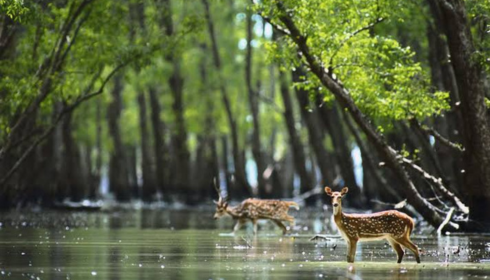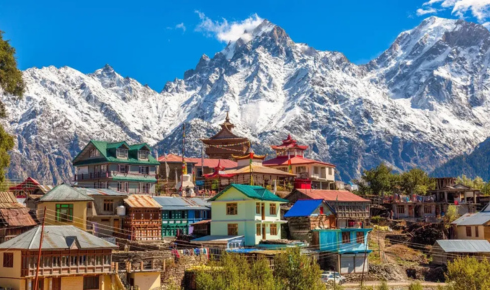1. What are the benefits of visiting rural destinations?
Visiting rural destinations offers several benefits:
Peace and tranquility: Rural areas are generally less crowded, providing a more relaxed and peaceful atmosphere.
Connection to nature: You can enjoy beautiful landscapes, wildlife, and outdoor activities like hiking, cycling, or stargazing.
Authentic cultural experience: The village will still uphold local traditions, food, and handicraft that would be deepened by exposure to the traveler.
Support the local communities: Your travel will straight benefit small-scale businesses and locals in their pursuit for sustainable tourism.
2. How do I discover rural destination to visit?
To discover rural destinations you can:
Internet research: Find hidden gems rural places not advertised to tourists with websites, traveling blogs, social media.
Ask locals: Ask local tourism boards or residents for suggestions of places that are not so well known.
Search for eco-tourism destinations: Many rural destinations focus on sustainable tourism and have eco-friendly accommodations or activities.
Check rural guides: More and more travel books and websites now specialize in rural or “slow travel” destinations.
3. What can I do in rural destinations?
Rural destinations offer a wide range of activities:
Outdoor activities: Hiking, biking, horseback riding, kayaking, fishing, or wildlife watching.
Cultural immersion: Local markets, traditional festivals, local cuisine, or local crafts and farming.
Agritourism: Farm stays, pick-your-own fruit farms, or learn about old-fashioned farming techniques.
Relaxation: Rural settings are great for spas, wellness retreats, and quiet areas to unwind in nature.
4. What do I need to bring to a rural destination?
Packing for a rural destination will depend on the type of activities you have planned, but in general, you should pack:
Comfortable clothing: For hiking, outdoor activities, or rural exploration.
Sturdy footwear: If you plan on walking or hiking.
Insect repellent: Rural areas often have more insects, especially in summer.
Weather-appropriate gear: Be prepared for sudden weather changes, such as rain or cold evenings.
Portable power bank: When access to charging points is limited.
Local maps or offline navigation apps: Signal might be poor in rural areas, and GPS and internet connectivity would be affected.
5. How can I get to these rural places?
Getting to these rural destinations does require some planning:
Self-driving: It’s usually the best way to reach rural places in a car rented or by own vehicle as one can stop over at scenic views and take detours.
Public transport: There are buses or trains that may bring you to remote areas, although you would more likely need to combine them with local taxis or bike rentals to get to certain sites.
Private tours: The travel agency may organize tours in the country’s rural areas, including guides and transportation, which is helpful if you don’t know much about the region.
6. Are rural destinations good for the single traveler?
Yes, rural places are okay for solo travelers, but you should:
Research your destination: You may find some rural areas to be lacking in infrastructure or amenities, so be sure to plan ahead.
Stay in safe accommodations: Pick well-reviewed and reputable lodging options, such as local guesthouses, eco-lodges, or rural B&Bs.
Connect with locals: Rural areas are often welcoming, and local communities can offer support and help you find unique experiences.
Practice caution: As with any travel situation, be aware of your surroundings, especially when traveling in remote areas.
7. Is rural destination expensive?
Visiting rural destinations is not a costly affair:
Budget-friendly: Rural destinations are less expensive than major cities. The accommodation, food, and activities are less expensive, and you may save on the price of attractions and tours.
Affordable luxury: Some of the rural destinations have luxury experiences, such as boutique hotels or guided tours that are more expensive but less so than in city-centric luxury offerings.
Prices will depend on your destination: It might be relatively more expensive at times in famous rural destinations like Cotswolds, UK or Napa Valley, USA depending upon the high demand. One must compare for getting a better one.
8. Is rural destination safety?
Rural destinations are, generally speaking safe; however the following tips must be kept in mind to make a visit successful.
Emergency services: Rural areas may have limited access to emergency services, so be aware of the nearest hospital or medical center.
Traveling at night: Some rural destinations may lack streetlights or have less public transportation available at night, so plan your activities during daylight hours.
Wildlife: If you’re hiking or camping, know about local wildlife, such as bears or venomous snakes, and take precautions accordingly.
Connectivity: In remote areas, mobile phone signal and Wi-Fi may be weak or unavailable. Let someone know your travel plans in case of emergency.
9. What’s the best time of year to visit rural destinations?
The best time to visit rural destinations depends on the region and the activities you’re interested in:
Spring and Summer: Ideal times for hiking, camping, or any outdoor event. The weather’s warm, and most of the rural locales are lush and green.
Autumn is a great season for driving, foliage, or harvest activities such as wine tasting or picking fruit.
Winter Rural destinations with snow and sporting activities can be mesmerizing, but one has to prepare for cold weather and snow in some regions.
10. How can I contribute to the local community during a trip to a rural destination?
Supporting local communities in rural destinations is rewarding and beneficial:
Shop locally: Buy souvenirs, crafts, and products directly from local artisans or markets.
Eat at local restaurants: Choose locally-owned cafes or farm-to-table restaurants to enjoy regional cuisine and support local farmers.
Engage in sustainable tourism: Participate in eco-friendly activities and stay in accommodations that prioritize sustainability.
Support rural businesses: Whether it’s staying at a rural B&B, taking part in guided tours, or participation in cultural experiences, spending money directly with local businesses helps keep the community thriving.
Exploring rural destinations offers the opportunity to slow down, embrace nature, and discover a side of life that is often overlooked in more commercialized tourist spots. With proper planning, respect for local cultures, and preparation, you can enjoy an enriching and memorable rural travel experience.














Your point of view caught my eye and was very interesting. Thanks. I have a question for you. https://www.binance.info/register?ref=IXBIAFVY
Thanks for sharing. I read many of your blog posts, cool, your blog is very good.